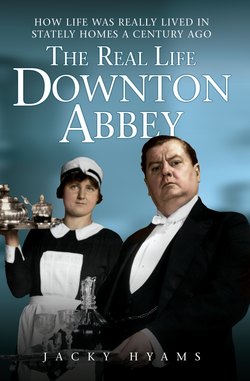Читать книгу The Real Life Downton Abbey - Jacky Hyams - Страница 23
На сайте Литреса книга снята с продажи.
BEING LADY BOUNTIFUL
ОглавлениеYet despite all this big spending and trading of money for status, the mega-rich are not completely oblivious to the world beyond their own.
Outward appearances are everything. And while aristocratic families often treat their servants and those living on their estate as inferior beings from a separate planet, they are, at the same time, obliged to foster the general idea that they are moral guardians of the needy and less well off. They have to be seen to be conscious of their responsibilities to others. It is called noblesse oblige: if you are privileged and rich, you have a moral duty to public service and charity; it means you are seen to be putting your money to good use.
This idea – of patronising the poor with one hand, dispensing charity and goodwill from the Big House, and exploiting them with the other by using them as an astonishingly cheap labour force – promotes the centuries-old view of a paternalistic lord and master who is concerned about the wellbeing of his tenants. And in fairness, not all the big landowning families are cynical in their treatment of the poor people living on their estates; some genuinely do form good relationships with their tenants and want to help them.
Consuelo Vanderbilt, for instance, becomes well known for her devotion to the welfare of the poor people on the big Blenheim estate, and her concern for the wellbeing of her 40 live-in servants – a dedication to charitable works that manifests itself throughout her life. Yet the truth is, Consuelo is behaving according to all the rules and traditions that dictate the every move of a very wealthy aristocratic woman: the Edwardian mistress of a country estate is a key player in this demonstration of concern for the needy. It is her role and hers alone to be Lady Bountiful, dispensing goodwill locally, making visits and perhaps giving advice and hand-me-downs to the needy tenants.
Whatever her own feelings or views, the wealthy country-house wife is obliged, as an important duty, to visit the estate’s tenants regularly, raise money for good causes like hospitals or for the sick and needy, and involve herself in fund-raising for local events such as bazaars, in garden parties and important dates on the estate social calendar. Many throw themselves into their charity work – it is, after all, the only route for independent initiative and action available to them. Everything else in their life is determined by a rigid series of rules and regulations – even their socialising and lavish entertaining follows a very specific set of rules.
They can’t be housewives or mothers, even if they want to, because they have armies of servants to do all their work for them. Their family relationships, including those with their husbands, are all conducted in a rigid, pre-determined way. So while the Lady Bountiful role is a must for someone in this elevated social position – the other women in her social circle are usually equally involved in charitable works – it winds up serving a useful purpose: in the absence of a fully formed Welfare State, there is, at least, one resource for helping the poor.
Though both husband and wife have this duty to the community to fulfil, aristocratic men and their male heirs do not, as a rule, get very involved in the day-to-day detail of charity work. It’s very much seen as women’s territory. So in the midst of all the planning, running the household, socialising and emphasis on status, the mistress of the house must allocate time, in between shopping in Paris or organising (with a lot of help) extraordinarily extravagant, money-no-object dinners, to be a visible charitable presence.
Yet when you look at the tiny salaries the toffs are quite happy to pay their servants, you can only scratch your head and wonder about the hypocrisy of it all.
